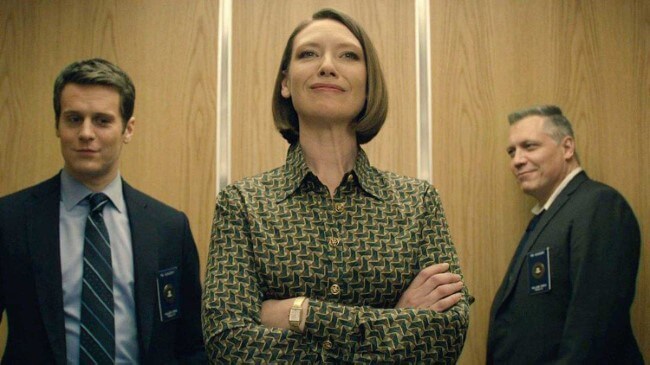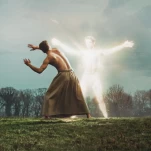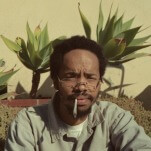It Still Stings: Mindhunter‘s Sidelining Robbed Us of a Killer Conclusion
Photos via Netflix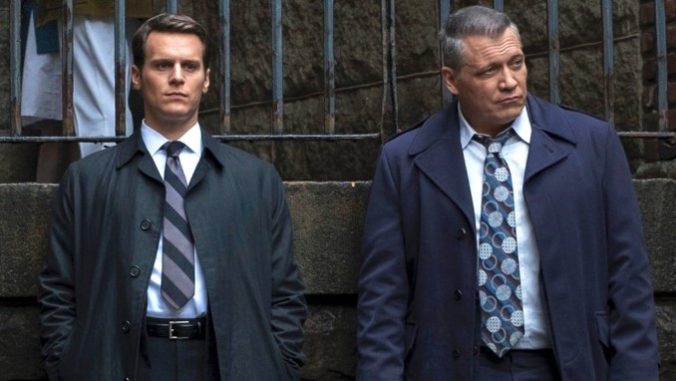
Editor’s Note: TV moves on, but we haven’t. In our feature series It Still Stings, we relive emotional TV moments that we just can’t get over. You know the ones, where months, years, or even decades later, it still provokes a reaction? We’re here for you. We rant because we love. Or, once loved. And obviously, when discussing finales in particular, there will be spoilers:
![]()
It’s safe to say that in recent years, Netflix has struggled to generate the kind of “prestige” dramas that still routinely draw viewers and critical buzz to premium cable networks or streamers such as HBO. Few among us could hope to understand the demographics being sought by such a massive entertainment juggernaut, or decrypt the desires of the unknowable algorithm as it tries to translate social media hype and bots sharing GIFs into subscriber predictions for three quarters from now. Trying to account for every variable would take supremely gifted intuition and insight into the human condition … the exact skillset of the fictional (but reality inspired) protagonists of Mindhunter. And Netflix let Mindhunter lay fallow, so who’s going to save us now?
The drama devised by creator-writer Joe Penhall and showrunner David Fincher was the rarest kind of Netflix project—a beautifully rendered, big budget, period piece drama with near universal critical praise and audience plaudits to match. And yet, as is so often the case with these diamonds in the rough, the show simply didn’t seem to have the groundswell of support and widespread hype to match the adoration it received from its rapt viewers. At the very least, it wasn’t as widely adopted as Netflix seemingly demands every show be in order to avoid the ever-looming axe, although Mindhunter was never truly canceled with finality—instead, it was sent into “indefinite hiatus” as Fincher’s attention drifted by necessity to an array of other projects. That “hiatus” has now stretched for more than three years, and although rumblings of a Mindhunter revival always seem to be percolating, each passing month only renders a third season less likely when all is said and done.
And that truly is a shame, because Mindhunter was one of the most gripping, unnerving, brilliantly designed and powerfully acted series that Netflix has ever brought to the world of streaming. It’s also a painfully incomplete narrative, as its second season concluded with numerous major storylines dangling in space, robbed of their dramatic possibilities. Watching the series again in retrospect, it’s clear that Mindhunter had a map for where it was headed over several more seasons, but it feels very unlikely we’ll ever see the satisfying payoff of its journey into the darkest parts of the human psyche.
The Gnawing Uncertainty of Mindhunter’s World
If there’s one concept that Mindhunter illustrates to absolutely devastating effect, it’s the crippling emotional weight of uncertainty and doubt. This has always been one of its hallmarks, regardless of where the uncertainty is coming from. In the first season of the show, that doubt is felt radiating from the core cast, particularly Holt McCallany’s Bill Tench and Anna Torv’s Dr. Wendy Carr, as they weigh the wisdom of attaching their careers to young upstart Holden Ford (Jonathan Groff) in the fledgling days of the FBI’s Behavioral Science Unit. Few in the bureau are true believers in their work in the field that will become known as criminal profiling, nor does anyone—including our protagonists—understand much of the operating mindset of the criminals that we’ll all casually refer to as “serial killers” in the decades to follow. Holden, Bill and Wendy are like explorers peering over a vast, uncharted ocean fraught with peril and confusion, uncertain that the journey will yield anything of value at all. In their minds, it’s entirely likely that they’re throwing their careers away on wild speculation.
Of course, the pearls of invaluable insight they begin to coax from incarcerated killers quickly works to change the minds of Holden, Bill and Wendy, even if the work of the BSU often remains a harder sell to the higher-ups at the Bureau. In its first season, these spellbinding interview segments quickly became Mindhunter’s calling card, helping to get the show noticed by the viewers who became its core audience. The verisimilitude of the conversations with killers such as Ed Kemper and Jerry Brudos gives these interviews an intoxicating and deeply disturbing energy—you are watching some of the most evil human minds illustrate exactly the way their train of thought was operating as they planned to abduct and butcher other human beings, albeit in the context of what often feel like friendly, casual chit-chats. Even the most seasoned horror genre geek is likely to shiver, especially when viewing comparisons of just how accurate performers such as Cameron Britton (Kemper) managed to make their portrayals of these real-life killers.
It’s the second season of Mindhunter, though, that really brings the sheer frustration and gnawing doubt of the team’s work to center stage, as Holden and Bill spend time in Atlanta, investigating a spate of child murders that occurred between 1979-1981. This time around, we’re seeing not just the academic drive of someone like Holden to prove his theories, but the powerless rage of the families who lost their children, utterly convinced that they need to take the law into their own hands because they’re surrounded by an ineffectual justice system that fails to even recognize/acknowledge the presence of the killer, much less apprehend him. This real-life case was no doubt chosen for the frustratingly open-ended nature of its conclusion—a suspect is arrested, and although he’s clearly connected on some level to aspects of the crime, neither Holden nor the audience can feel confident that justice has truly been served when the desperate city leaders appear eager to pin the entirety of the murders on the single individual. There’s a maddening sense of unfinished business that infects both Holden and the viewer observing Holden’s story, knowing that those responsible may have escaped justice … and that same sense of frustration has now leaked out into Mindhunter’s broadcast history itself, thanks to the lack of a third season. It’s an outcome oddly appropriate to the thematic soul of the show, but deeply dissatisfying all the same.
-

-

-

-

-

-

-

-

-

-

-

-

-

-

-

-

-

-

-

-

-

-

-

-

-

-

-

-

-

-

-

-

-

-

-

-

-

-

-

-

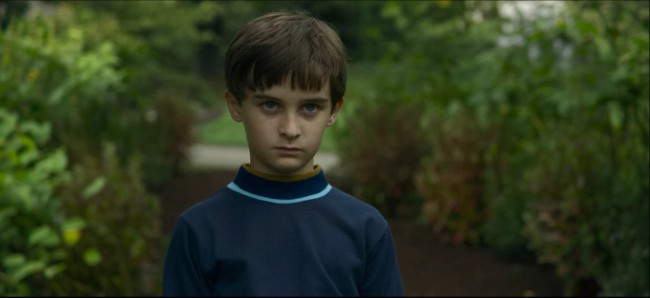 Enough column inches don’t exist to describe all the unsettling things about this kid.
Enough column inches don’t exist to describe all the unsettling things about this kid.